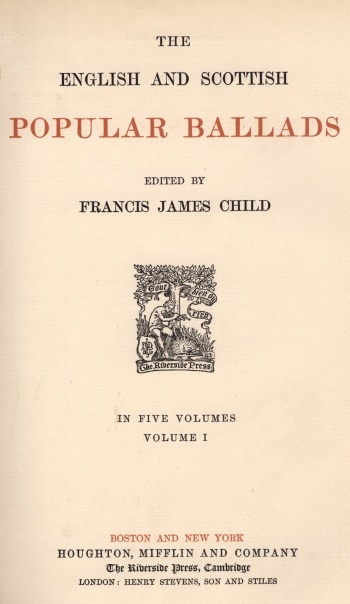In order to preserve the historical integrity of the ballads in this section they are presented in their original dialects, which span a broad range. These ballads have been passed down through the centuries from many different regions of Great Britain before appearing in print. A synopsis of each ballad, in modern American English, is provided to aid in ease of comprehension of the dialects.
"The wind doth blow today, my love,
And a few small drops of rain;
I never had but one true-love,
In cold grave she was lain.
"I'll do as much for my true-love
As any young man may;
I'll sit and mourn all at her grave
For a twelvemonth and a day."
The twelvemonth and a day being up,
The dead began to speak:
"Oh who sits weeping on my grave,
And will not let me sleep?"
"'Tis I, my love, sits on your grave,
And will not let you sleep;
For I crave one kiss of your clay-cold lips,
And that is all I seek."
"You crave one kiss of my clay-cold lips;
But the call of death is strong;
If you have one kiss of my clay-cold lips,
Your time will not be long.
Love, where we used to walk,
The finest flower that ere was seen
Is withered to a stalk.
"The stalk is withered dry, my love,
So will our hearts decay;
So make yourself content, my love,
Till God calls you away."
The ballad The Unquiet Grave appears in Volume II of The English and Scottish Popular Ballads, edited by Francis James Child. These volumes are in the public domain.

The Child Ballads are 305 traditional ballads from England and Scotland, and their American variants, anthologized by Francis James Child during the second half of the 19th century. ... Read more at Wikipedia.